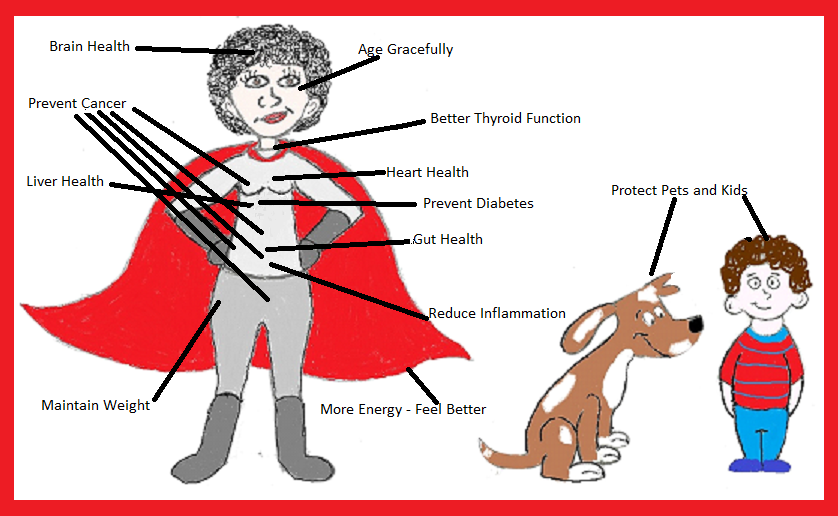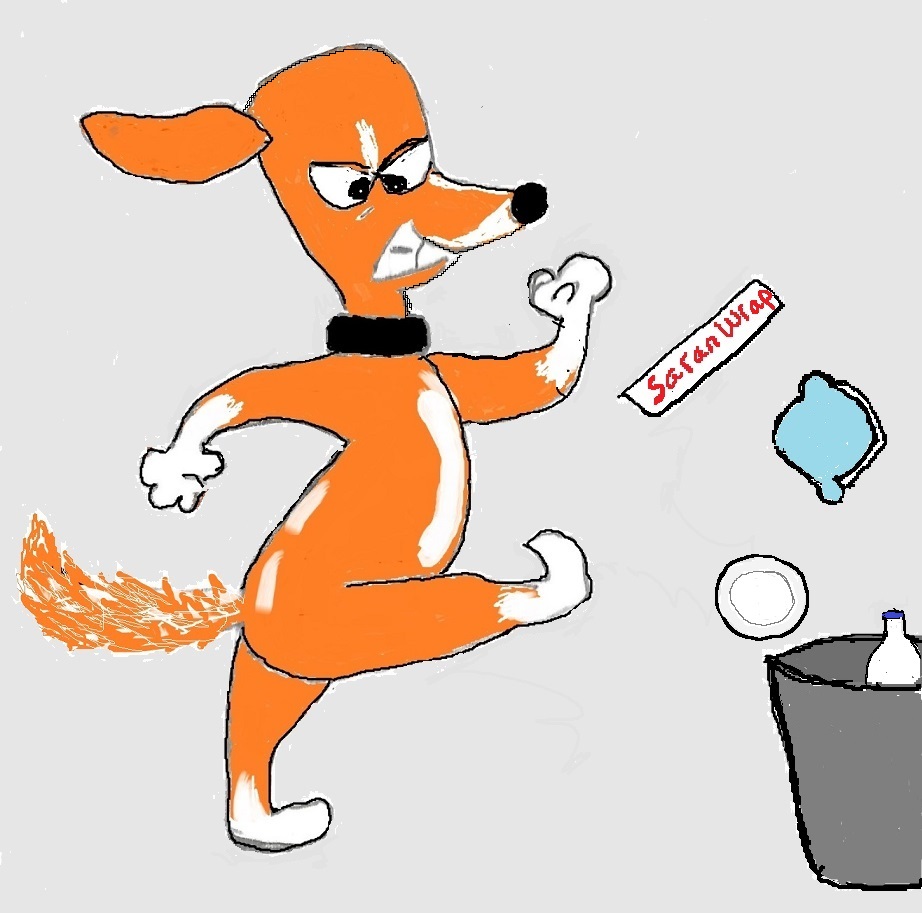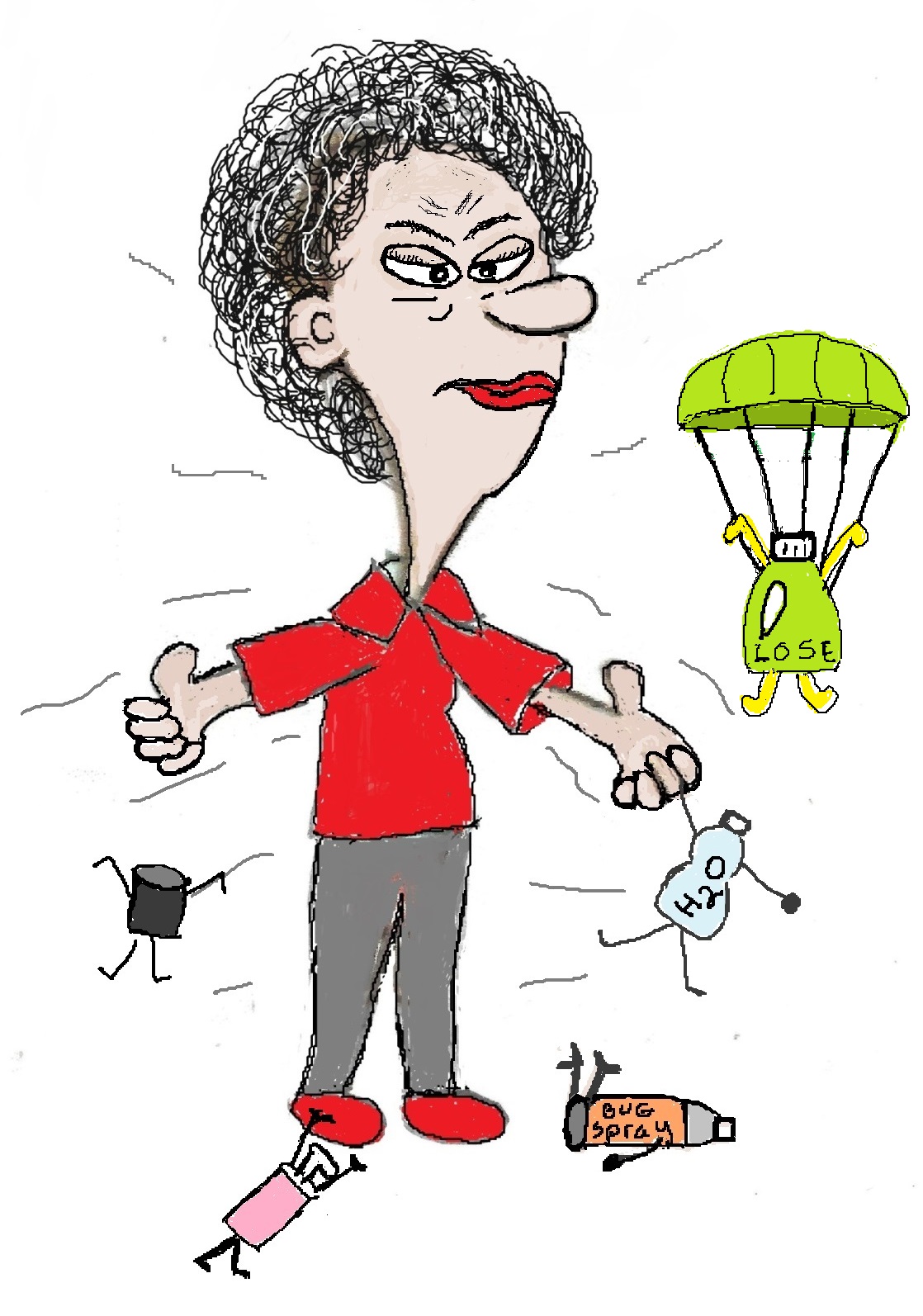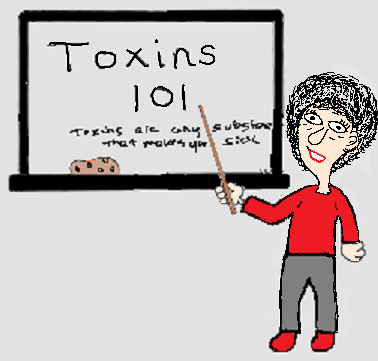- Home
- Non (Less) Toxic Living
13 Ways Non & Less Toxic Living Will Benefit You
Non and less toxic living is about reducing your exposure to the toxic chemicals in the products you use. By switching to nontoxic and less toxic products, you’ll reap huge rewards with just a small amount of effort.
So if slowing down aging, preventing diabetes and staying healthy sound good to you, give less toxic living a try.
For inspiration, here are 13 ways non toxic living and less toxic living will benefit you. I could have listed more but as usual, this post is already too long.
1. Non Toxic Living Will Help Prevent Cancer
90–95% of cancer cases have their roots in the environment and lifestyle, meaning the causes are not genetic. Staggering, but not surprising considering how many cancer causing chemicals are floating around.
There are over 60 toxic chemicals that are known to cause cancer and almost 200 suspected of causing cancer. They’re in your indoor air, your food and drinking water, and the products you use.
This means you’re exposed multiple times a day to multiple cancer causing chemicals. For example, Endocrine disrupters like BPA, and parabens are linked to breast and prostate cancer.
Many pesticides, like atrazine, are also linked to breast and prostate cancer. Arsenic and the byproducts of water disinfection that show up in your drinking water are linked to bladder cancer. Exposure to formaldehyde, released from personal care products and air fresheners, may cause leukemia and lymphoma.
But you can reduce your exposure to many carcinogens with non toxic living.
For example, processed meats (bacon, lunch meat, sausage etc.) and arsenic are on the list of known human carcinogens. Just by cutting processed meats and brown rice products from your diet and filtering your drinking water you reduce your risk for bladder, colon, kidney, liver, lung, prostate, skin, and stomach cancers.
2. Improve Your Gut Health
Your gut does a lot more than just digest food and take up a huge amount of space in your abdomen. It plays a major role in the production of vitamins, enzymes, and other compounds that digest and metabolize food and regulate your immune system. It also helps your body detoxify toxins.
Gut health is now recognized as a key part of your overall health. And the foundation of gut health is the trillions of microorganisms (microbiota) that live in your esophagus, stomach, small and large intestine, called the microbiome.
Your gut’s microbiota is similar to an organ in that it performs functions essential for your survival. So it makes sense that anything that disturbs how your gut functions can make you sick.
And many things can mess with these little guys. By mess I mean reduce the number and diversity of different microbes, and the ratios of the different types.
Researchers are beginning to discover that exposure to some ingested toxins, including arsenic, changes your microbiome. Besides arsenic, heavy metals like mercury, pesticides like Roundup and chloripyrifos, PAHs (polycyclic aromatic hydrocarbons) and antimicrobial chemicals can and do mess with your gut health.
For example, parabens, sulfites, nitrites, nitrates, and many phenols are preservative agents that are present in foods, cosmetics, and cleaning supplies. They are designed to kill microbes. Less toxic living will reduce your exposure to the toxic chemicals that mess with your gut.

3. Protect Your Liver
Your liver serves many vital functions in your body. It produces blood proteins and metabolizes lipids and sugar. And it’s your body’s detox machine. Your main line of defense against toxins.
Your liver has the vital job of breaking down toxic chemicals into forms that can be eliminated from your body in urine, feces and sweat. And many of the toxic chemicals your liver deals with leave a lasting impression.
For example, did you know toxic chemicals can make your liver fat? Approximately 20–30% of the population in the United States carry extra fat in their livers, a condition called Nonalcoholic Fatty Liver Disease (NAFLD).
And a recent study reported that about one-third of all industrial chemicals can lead to fatty changes in the liver, called Toxicant Associated Fatty Liver Disease (TAFLD). These include pesticides like atrazine, endocrine disruptors like BPA, and arsenic, mercury, PCBs, PFOA, PFOS and vinyl chloride (released from vinyl products) contribute to a fatty liver.
That’s a problem because excess liver fat damages your liver. It can lead to liver inflammation and liver cancer. It is also associated with the recent rapid rise in the number of people with diabetes, obesity, and metabolic syndrome.
The good news is, it can be reversed. Reducing your exposure to the toxic chemicals that contribute to TAFLD, maintaining a healthy weight, regular exercise and a Mediterranean Diet can prevent and reverse fatty liver disease.
4. Prevent Diabetes
The world is facing a diabetes epidemic. About 10% of the US population has the disease. And while obesity and genetics play a role, so does exposure to some toxic chemicals.
When you have diabetes, your body either doesn't make enough insulin or can't use its own insulin as well as it should. This causes sugar to build up in your blood.
Insulin is a hormone produced by the pancreas, which is part of the endocrine system, making it a prime target for endocrine disrupting chemicals like BPA, phthalates and many different types of pesticides.
These toxic chemicals are linked to insulin resistance, a precursor to diabetes where your body doesn’t respond to insulin. Insulin resistance also plays a role in most other types of metabolic diseases.
Various POPs (persistent organic pollutants) also contribute to the current epidemic of type 2 diabetes. POPs love to hang out in your body fat and take years, and sometimes decades, to break down in your body and the environment. Even though many of these POPs have been banned, like DDT, they continue to affect your health.
Arsenic also has a hand in causing diabetes. A 2013 study found that for every 15 milligrams per liter increase in arsenic concentration in drinking water, the risk for diabetes increased by 27%.
5. Slow Down Aging
There are two critical times in your life when toxins do the most harm. The first is when you’re very young and your body is still developing. This critical time is well known and well-studied.
The second one is less well known and largely ignored by researchers. After age 50 you are also more susceptible to the effects of toxin exposure.
Why? Because if you’re older you have two strikes against you. You have accumulated a lifetime of toxin exposure. And the changes in your body as you age decreases your ability to deal with toxin exposure.
In other words, a lifetime of toxin exposure, plus your body’s decreasing ability to deal with toxins accelerates aging and disease. Reducing your exposure to toxins will help you age more gracefully.
If you have doubts that it will, just think about how smoking ages people.
6. Reduce Body Inflammation
Inflammation is part of your body’s immune response and short-term inflammation (acute) is a good thing. But, long-term or chronic inflammation is not.
In fact, there is no doubt in the scientific community that chronic inflammation throughout your body causes many health problems and diseases. These include allergies, asthma, arthritis, cancer, diabetes, Parkinson’s Disease, Alzheimer’s, heart disease and obesity.
And some of the causes of body inflammation include exposure to endocrine disrupting chemicals like BPA and phthalates and pesticides like atrazine and chloropyrifos.
POPs (persistent organic pollutants ) like PCBs and PFCs (found in stain and stick resistant products), nanoparticles and other toxins in the air that you inhale also create inflammation.
And it is now believed that inhaling toxic chemicals doesn't just cause lung inflammation. This inflammation can spread throughout your body.
Cleaning up your indoor air and going phthalate, fragrance and pesticide free are all less toxic living approaches to reducing chronic inflammation.

7. Protect Your Heart
According to the CDC, heart disease is the leading cause of death for both men and women and accounts for 1 in 4 deaths in the U.S. I’m sure you’re aware that diets high in saturated fats and cholesterol, obesity and lack of exercise are key contributing factors to heart disease.
There are also several toxic chemicals that are linked to the disease. The link between exposure to arsenic in drinking water and heart disease has probably been the most studied. One study estimated that for every 15 mg/L (micrograms per liter) increase of arsenic in your drinking water, the risk for heart disease increased by 38 percent.
Outdoor and indoor air pollution (which contains a variety of toxic VOCs and particles) are also linked to heart disease. Exposure to chemicals released from cans and plastic, like BPA and antimony, and nonstick and stain resistant products are also thought to cause heart disease.
A few simple less toxic living changes, like going fragrance free, ditching canned foods and filtering your drinking water will reduce your exposure to these toxic chemicals.
8. Improve Thyroid Function
According to the American Thyroid Association about 20 million Americans have some form of thyroid disease. One woman in eight will develop a thyroid disorder during her lifetime.
Less toxic living will benefit thyroid function because your thyroid is a gland that produces hormones. So it’s part of your body’s endocrine system. And there at least 1,000 toxic chemicals that can mess with your endocrine system and create thyroid problems.
Endocrine disrupting chemicals mess with your thyroid by interfering with your pituitary gland’s ability to make the hormones that stimulate your thyroid to release its hormones. These toxins can also interfere with your thyroid’s ability to make hormones.
Both of these effects can reduce the amount of thyroid hormone circulating in your body. In fact, over 150 toxic chemicals have been shown to reduce circulating levels of thyroid hormone.
But, the majority of exposure comes from plastics, pesticides, preservatives and PFC’s (chemicals used to make things nonstick and stain-resistant. It's time to cut these products out of your life with less toxic living.
9. Maintain Brain Health
A shrinking brain, autism, dementia, Alzheimer’s and Parkinson’s Disease. Toxic chemical exposure may contribute to all of these brain destroying diseases because some toxic chemicals are neurotoxins.
And neurotoxins are capable of damaging and destroying nerve cells. So they affect your brain and nervous system. And these toxins can easily pass from your blood into your brain (called crossing the blood brain barrier)
Pesticides, especially insecticides, are a prime example. A 2013 UCLA study reported that if you frequently use any household pesticide your odds of getting Parkinson’s Disease (PD) increases by 47%.
If you frequently use organophosphate insecticides (OPs), which kill insects by affecting their nervous system, the odds of PD increase by 71%. Permethrin, a common household insecticide and 2,4-D, the active ingredient in weed and feed lawn products, are also linked to PD.
Organochlorine (OC) pesticides are linked to Alzheimer's disease and toxic metal exposures are linked to autism. And arsenic and mercury, found in most fish can also destroy brain tissue.
Even artificial sweeteners can damage your brain. Researchers found that people who drank diet soda daily were almost three times as likely to develop stroke and dementia within the next 10 years. And drinking one diet soda per day was associated with smaller brain volume.
Not convinced less toxic living can benefit your brain? Need time to think about it? Ya better hurry.
10. Make It Easier To Maintain A Healthy Weight
More than 35% of us are considered obese. Inactivity and high fat and high calorie diets are common causes of obesity.
But these factors don’t explain the current epidemic. Researchers are now examining the role that exposure to toxic chemicals, especially endocrine disrupting chemicals, play in the world’s obesity problem.
Because fat cells act much like an endocrine organ, releasing hormones related to your appetite and metabolism, they are prime targets for endocrine disrupting toxins. While researchers are just beginning to dig into the link between obesity and toxins, some studies found that BPA, PFCs, phthalates, and insecticides may contribute to obesity.
These chemicals may make it difficult to maintain a healthy weight because they increase the number and size of fat cells and promote fat storage. Also, they affect the hormones that influence appetite, food preferences and energy metabolism. Less toxic living will remove this barrier to a healthy weight.
11. Protect The Little Ones In Your Life
Kids need to be protected from many things, including toxic chemicals. If you're a parent of young children, just starting your family or a grandparent, less toxic living will protect the young ones in your life.
Why - because kids are more vulnerable to toxic chemical exposure. Their tissues and organs are still developing and their livers are less efficient at breaking down and removing toxins.
Also, their blood–brain barrier is not fully formed, and it is more permeable to toxins than a mature brain. Plus, because of their small size, kids take in more toxins relative to their body weight.
This means the toxins kids are exposed to during pregnancy and early childhood can disrupt their normal development and cause disease later in their life.
In fact, some researchers believe that many chronic adult diseases, like asthma, diabetes, cancer, infertility and obesity are a result of toxin exposure during your child's development. Even low level exposure during fetal development and infancy may cause irreversible effects in adulthood.
Cleaning up your indoor air, detoxing your diet, going pesticide free and eliminating toxic household chemicals are all ways to protect the young ones in your life.

12. Protect Your Pets
Exposure to toxic chemicals can affect your pet's health in many of the same ways that it affects you. And their biology and behaviors increase the risks to their health from toxin exposure.
They walk through chemically-treated areas unknowingly, sniff weeds treated with herbicides, absorb pesticides through their mouth, nose, skin and eyes, and can absorb through their skin any powder that sticks to their fur.
Plus, because they develop and age seven or more times faster than children, pets also develop health problems from exposures much more rapidly.
It’s one reason why some researchers believe the cancer rate in dogs is on the rise. The home, yard and flea pesticides that your pups are exposed to contribute to high rates of breast, skin, bone, oral and connective tissue cancers and lymphoma in dogs of all ages. And cancer is the leading cause of death in dogs over 10 years.
In cats, hypothyroidism is on the rise. Obesity in pets is also
a problem. Endocrine disrupting chemicals like BPA and flame retardants may be
to blame. Other sources of toxic chemical exposure include food, plastic toys, grooming products and even pet beds treated with flame retardants.
By choosing nontoxic and less toxic products for your pets your protecting their health and yours. Pets drag yard pesticides inside on their feet and fur and the toxic chemicals you use on your pets linger, exposing you for days or weeks after the products are applied.
13. Increase Your Energy And You’ll “Feel” Better
I can’t back up these benefits with scientific evidence. There isn’t any. I base these benefits of non and less toxic living on my own experience and the experiences of people who have adopted this approach.
I believe you have more energy and feel better when you reduce your exposure to toxic chemicals because your body isn’t wasting as much energy dealing with them. Just think about your last hangover.
How did you feel? And how energetic were you as your liver and the rest of your body dealt with the toxic effects of alcohol?
Alcohol is toxic to your body. And so are arsenic, formaldehyde, phthalates, BPA and a long list of other chemicals. Non toxic living means you’ll avoid a daily toxic chemical hangover. So you’ll feel better and have more energy.
To get you started on your less and non toxic living journey check out Shedding Your Toxic Product Habits and Toxin Primer.





